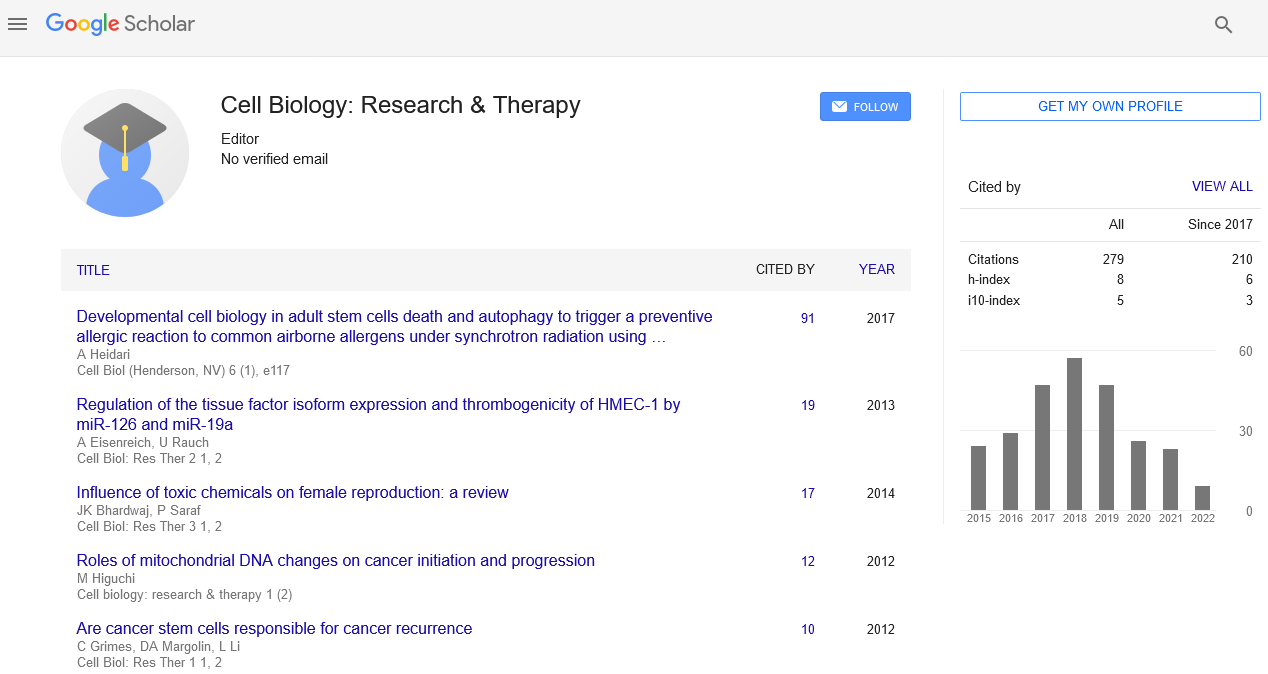Short Communication, Cell Biol Res Ther Vol: 2 Issue: 2
Chemotherapy Increases Aggressiveness of Prostate Cancer via Epithelial Mesenchymal Transition
| John J Kim1,2,3, James E Verdone2,3 and Steven M Mooney1,2,3* | |
| 1University of California, Berkeley and University of California, San Francisco Graduate Program in Bioengineering, USA | |
| 2The James Buchanan Brady Urological Institute and Department of Urology, The Johns Hopkins University, School of Medicine, Baltimore, MD 21287, USA | |
| 3Department of Biomedical Engineering, Whiting School of Engineering, The Johns Hopkins University, School of Medicine, Baltimore, MD 21287, USA | |
| Corresponding author : Steven M. Mooney, Ph.D James Buchanan Brady Urological Institute, Department of Urology and Oncology, Johns Hopkins University School of Medicine, 600 N. Wolfe St. 129B Marburg, Baltimore, MD 21287, USA Tel: 410-614-0120 Fax: 410-502-9336 E-mail: smooney4@jhmi.edu |
|
| Received: June 20, 2013 Accepted: August 13, 2013 Published: August 16, 2013 | |
| Citation: Kim JJ, Verdone JE, Mooney SM (2013) Chemotherapy Increases Aggressiveness of Prostate Cancer via Epithelial Mesenchymal Transition. Cell Biol: Res Ther 2:2. doi:10.4172/2324-9293.1000105 |
Abstract
Chemotherapy Increases Aggressiveness of Prostate Cancer via Epithelial Mesenchymal Transition
Although chemotherapy has been used as a major therapeutic weapon against advanced prostate cancer, overcoming drug resistance is still a major challenge. Cancer has been known to diminish therapeutic effect by several molecular mechanisms– increasing efflux by recruiting cell membrane pumps and limiting drug diffusion by constructing leaky vasculature. Moreover, recent studies suggest that long-term treatment with chemotherapy may have detrimental effects for patients presenting with solid tumors. Specifically, prostate cancer epithelial cells develop resistance to chemotherapy and may convert into mesenchymal cells. This switching process, known as Epithelial to Mesenchymal Transition (EMT), is a critical precursor in prostate cancer invasion and metastasis.
 Spanish
Spanish  Chinese
Chinese  Russian
Russian  German
German  French
French  Japanese
Japanese  Portuguese
Portuguese  Hindi
Hindi 